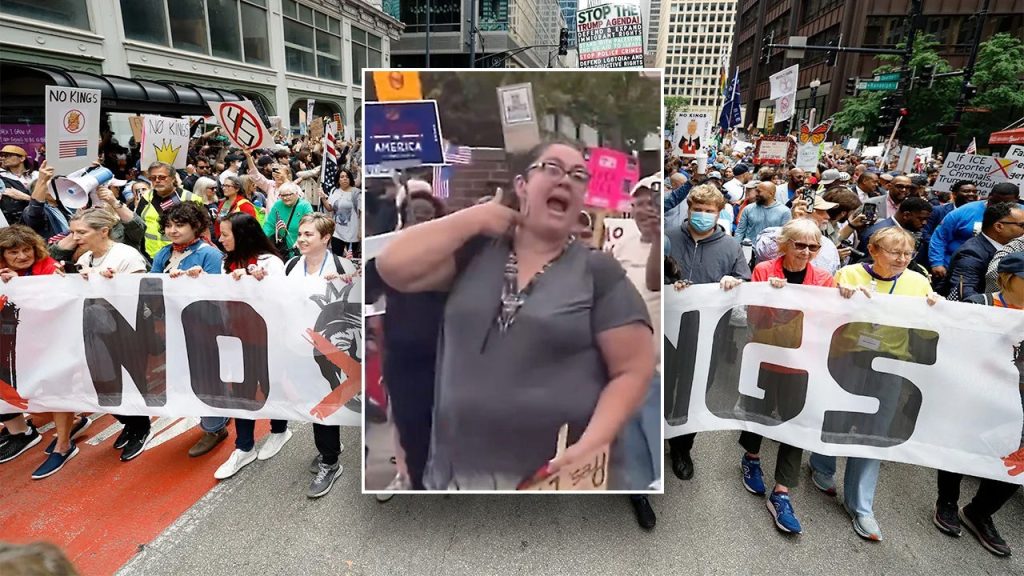Chicago Elementary School Principal Defends Teacher Who Mocked Charlie Kirk Assassination
In a troubling development from Chicago, a controversy has emerged surrounding a teacher at Nathan Hale Elementary School who appeared to mock the assassination of Charlie Kirk during a recent protest. The incident has sparked intense debate about appropriate educator conduct, free speech boundaries, and how school administrators should respond when staff members engage in politically charged behavior outside the classroom. The principal’s response has only intensified scrutiny, as many perceive she positioned the teacher as a victim rather than addressing the concerning behavior directly.
Lucy Martinez, an educator at Nathan Hale Elementary School, was captured on video during a “No Kings” protest making a disturbing gesture. In the footage, which has since been viewed tens of millions of times across social media platforms, Martinez can be seen putting a finger to her neck and mimicking pulling a trigger while shouting “bang, bang.” The timing and nature of this gesture appeared to reference the recent assassination of Charlie Kirk, who was killed by a gunshot to the neck. The video quickly went viral, with many viewers interpreting Martinez’s actions as celebrating or mocking Kirk’s violent death. The shocking display has prompted widespread calls for her termination, with critics arguing that educators should be held to higher standards of conduct, especially regarding violence, regardless of their personal political views.
Principal Dawn Iles-Gomez’s response to the incident has drawn significant criticism for what many see as a failure to address the actual behavior in question. In a letter sent to parents and staff, Iles-Gomez focused entirely on “threats” allegedly made against Martinez following the viral video, with no acknowledgment of what prompted those reactions. “Safety continues to be my top priority,” the principal wrote, “which is why I am writing to notify you of a situation involving our school. We were recently made aware of social media posts with language that resembles a potential threat to a staff member.” The letter continued to explain that the Chicago Police Department and CPS Office of Safety and Security had been notified and were investigating the situation. Notably absent was any mention of Martinez’s actions, any disciplinary measures being considered, or even acknowledgment of parents’ potential concerns about having a teacher who appeared to celebrate political violence educating their children.
The controversy occurs against the backdrop of nationwide “No Kings” protests, which have themselves generated controversy for instances of violent symbolism and threatening rhetoric. These demonstrations have become flashpoints in America’s increasingly polarized political landscape, with this incident representing just one example of how that polarization can spill into educational settings. The video of Martinez has become particularly divisive, with defenders suggesting she was exercising free speech rights at a protest unrelated to her professional role, while critics maintain that educators have special responsibilities as role models for impressionable children that extend beyond school hours. Parents of students at Nathan Hale Elementary find themselves caught in this debate, with many expressing concern about the values being modeled by school staff.
This incident bears similarities to other recent controversies involving educators expressing controversial political views. Just days earlier, a Kansas professor was placed on leave after referring to white men as “dangerous animals” following Kirk’s murder. These cases highlight the ongoing tension between educators’ free speech rights and their professional responsibilities, particularly in an era when social media can rapidly amplify controversial moments to national attention. School districts across the country are struggling to define appropriate boundaries for staff behavior outside school settings, especially when that behavior touches on politically divisive topics or appears to endorse violence against those with different political views.
As the controversy continues to unfold, the Chicago Public Schools district faces mounting pressure to take a clearer stand on the incident. Thus far, officials have remained largely silent beyond acknowledging awareness of the situation. Parents, community members, and observers from across the political spectrum are watching closely to see how the district balances concerns about teacher conduct with issues of free speech and due process. Whatever the outcome, this incident serves as a stark reminder of how America’s deepening political divisions are affecting even elementary school environments, raising difficult questions about the responsibilities educators have both inside and outside the classroom, and how school leaders should respond when those boundaries are tested.


